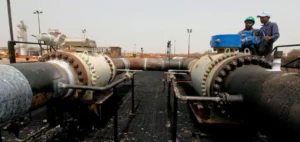The occupation of the Morona oil platform by indigenous activists in the Peruvian Amazon is underway. 41 workers have been detained since last Wednesday. This action aims to denounce the environmental damage caused to their territory by the national oil company Petroperu. In fact, since an oil spill two decades ago, the lands of the indigenous community Fernando Rosas have been damaged, and the community is demanding that Petroperu clean up these lands.
Workers blocked by the occupation of the Morona oil platform
The national oil company Petroperu said that indigenous activists are not allowing workers stranded on the platform to exercise their right to free movement. It also said it is implementing all possible measures to obtain the release of the 41 people who remain disenfranchised at the Morona station of the Norperuano pipeline, seized by members of the community Fernando Rosas.
A call for dialogue from the oil company
Petroperu reiterated his call to the leaders of this demonstration to leave the Morona station and find a solution through dialogue. However, the Morona station of the Norperuano pipeline is located in a remote area of the Amazon region of Loreto, some 1,000 km northeast of Lima.
The Norperuano pipeline is one of the largest pipelines in the country and transports crude oil from the Amazon to Piura on the coast, a distance of some 800 km. Built forty years ago, this pipeline has witnessed several oil leaks in the surrounding areas.
Grievances expressed in a letter
The grievances of the indigenous community were gathered in a letter sent to the Peruvian authorities and consulted by the AFP. In this letter, it is written that the oil company “obstructs the cleanup” of their territory contaminated with every rain since a leak, according to them, hidden 25 years ago. The activists assure that “no more oil will pass through their land” until it has been cleaned up.
Precedents set last September
Last September, indigenous groups had already protested by blocking a river affected by the crude oil spill – caused by a rupture in the Norperuano pipeline – in the Loreto wilderness region in the north of the country. On September 27, the government declared a 90-day state of emergency in the area affected by the oil spill in the Cuninico and Urarinas communities, where some 2,500 indigenous people live.






















